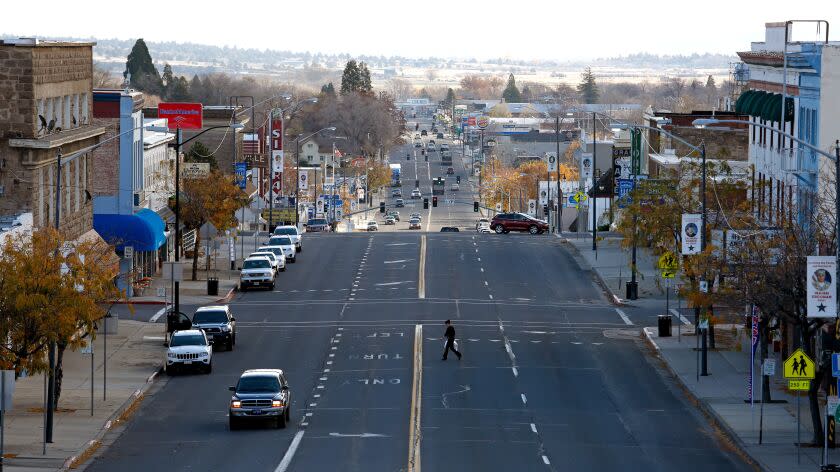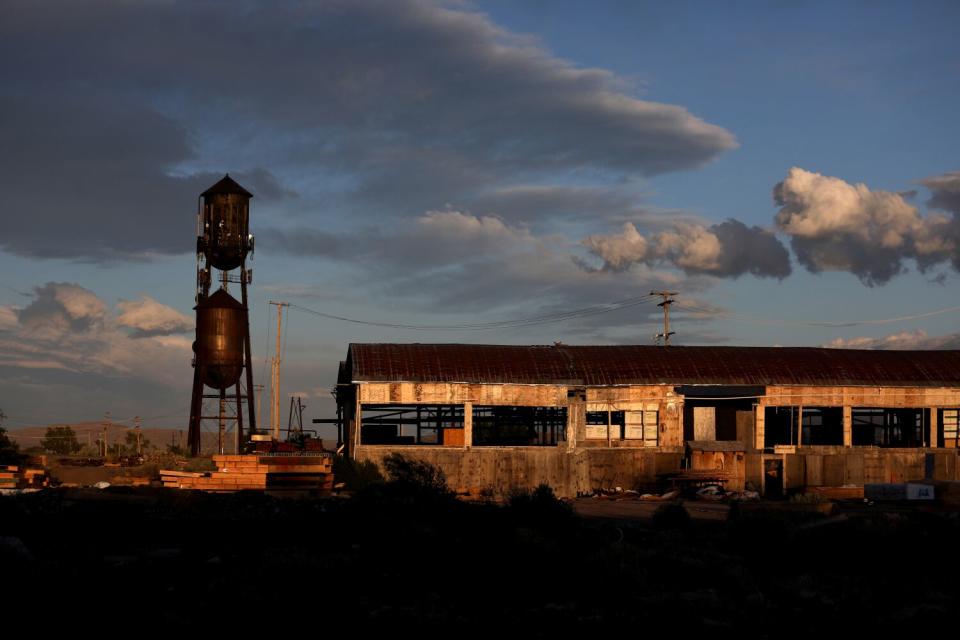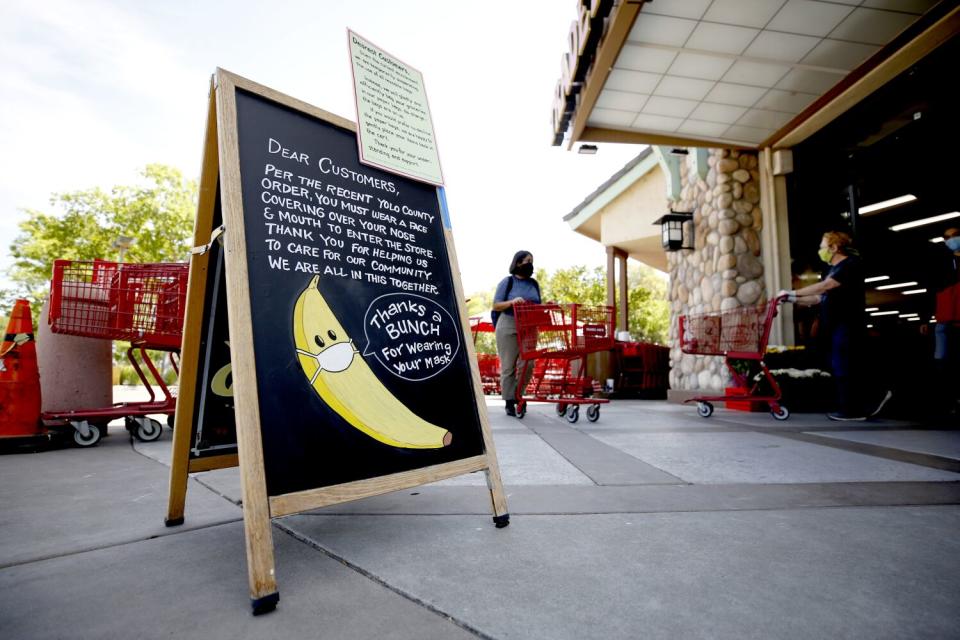California population winners and losers: Why some counties boomed and others shrank

A prison closed in Lassen County. College campuses welcomed students back in Santa Barbara and Santa Cruz counties, and thousands of new housing units were added in Yolo County.
While California's overall population continued to shrink, new census data show that during the pandemic period of the last two years, population swings have affected large and small counties across the state, the result of COVID-19 health protocols, the return of employees to workplaces, new housing construction and various other factors.
Several large urban counties — including Los Angeles, San Francisco and Santa Barbara — have started to rebound from population losses that hit hardest at the beginning of the pandemic.

Meanwhile in rural counties such as Lassen and Yolo, population numbers have fluctuated because of local changes, such as the closing of a prison or construction of new housing.
The big takeaway from the latest census data: Californians relocated quite a bit in response to the pandemic and other factors, but many counties are now starting to resettle into the pre-pandemic status quo.
Demographic experts say the census data reflect movements of the population during the period when COVID-19 was still a major concern, and they point out that it is possible that the population losses have slowed and urban centers could soon see their populations rebound when numbers for 2022-23 are released.
In the 2020-21 census data, urban counties such as Los Angeles and San Francisco showed the biggest percentage losses. But the population loss tapered off the following year in those urban counties in comparison to rural counties.
The "waning of the worst days of the pandemic has slowed the exit from major cities" as fear of living in crowded communities has decreased and in-office workers have become more common, said Paul Ong, director of the Center for Neighborhood Knowledge at UCLA.
The cities have "once again become appealing to a new generation of young workers," he said, though they still have major issues to address.
Housing, homelessness, infrastructure and safety issues have been "exposed and exacerbated" by the pandemic, and "without correcting these flaws, major cities will continue to depopulate," Ong said.
Moving out
Here are the 10 counties in California with the highest rate of population loss between July 2021 and July 2022.
Lassen: -6%
Alpine: -3.64%
Plumas: -2.95%
Sierra: -2.36%
Mono: -2.13%
Trinity: -1.74%
Del Norte: -1.71%
Napa: -1.40%
Mendocino: -1.34%
San Mateo: -1.34%
In Lassen County, Supervisor Jason Ingram attributes much of the recent population loss to the closure of the California Correctional Center in Susanville.

"A big percentage of that would be inmates," who have largely been "cleared out" as the prison closes, he said.
Employees of the prison may also be leaving as jobs dry up, contributing to population decrease. "We lost some corrections officers to other states," Ingram said.
Moving in
On the other end of the spectrum, some of the counties that lost many people in 2020-21 rebounded the following year.
Yolo County was the standout. After losing 1.5% of its population in 2020 — ranking 10th-most in the state — the county topped the list in growth in 2021-22.

Notably, Santa Cruz and Santa Barbara counties flipped from losing among the most people — second- and fourth-most, respectively — to showing top 10 percentage population gains.
"Many counties with large universities saw their populations fully rebound this year as students returned," Christine Hartley, assistant division chief for estimates and projections in the U.S. Census Bureau’s population division, said of the census results. Santa Cruz and Santa Barbara have major college campuses.
Riverside, Madera, Placer, Yuba and San Benito counties all continued to grow, showing top 10 percentage population gains in both years.
Here are the 10 counties in California that gained the most population between July 2021 and July 2022.
Yolo: +4.26%
Merced: +1.95%
Santa Cruz: +1.49%
Santa Barbara: +1.46%
San Benito: +1.36%
Yuba: +1.31%
Placer: +1.20%
San Luis Obispo: +0.97%
Madera: +0.85%
Riverside: +0.84%
Angel Barajas, a Yolo County supervisor, pointed to several areas of growth, including the south side of Woodland, where developers are "adding a couple of thousand units."
Woodland, one of four incorporated cities in the county, is "attracting people from the Bay Area and also the Sacramento region," he said.

Housing in the county is "affordable in comparison to Bay Area rates," Barajas said, and people can live there and either commute or telecommute to Bay Area jobs.
"It's a beautiful county, to be quite honest," he said. The county also is home to UC Davis, perhaps accounting for some of the growth.
Overall, California's population loss slowed considerably from the first year of the data set to the second. In 2020-21, the state lost 0.91% of its population. The following year, it lost just 0.29%.
This story originally appeared in Los Angeles Times.

